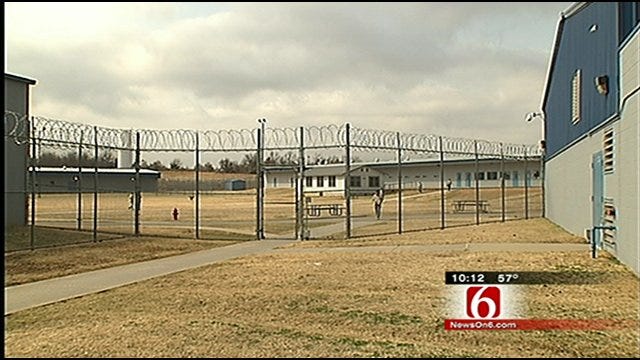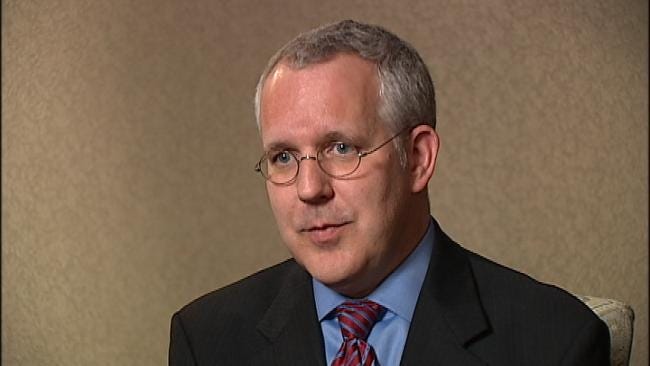Hundreds Of Former Oklahoma Governor Brad Henry's Parole Approvals Given Second Look
Governor Henry's staff turned in 313 parole approvals on his final day in office. But, when the paperwork went to the Secretary of State's office for processing, Henry was no longer in office.Thursday, April 21st 2011, 10:11 pm
Amy Lester, Oklahoma Impact Team
OKLAHOMA CITY -- On his last day in office, Governor Brad Henry's staff turned in hundreds of parole approvals. Some say the timing led to a lot more work for the state's new governor, Mary Fallin.
"I will say there have been many late nights and weekends both by the deputy general counsel and by me trying to get these caught up," said Judy Copeland, Fallin's General Counsel.
Here's what happened. Governor Henry's staff turned in 313 parole approvals, his final day in office, at 4 am. Many of those inmates were released a few days later. But, when the paperwork went to the Secretary of State's office for processing, Henry was no longer in office. That raised a legal question as to whether or not the parole approvals were valid. Fallin's legal team, the secretary of state and attorney general discussed this issue and looked at legal precedence.
Read legal case that was reviewed
The decision was made, these were attempts to parole, not completed paroles. So, Fallin and her team had to review all of them again.
"I'll tell you, it's been a lot of work. But, we kind of see that, that's what we're here for," said Copeland.
In addition to the 313, there are 70 or so cases that Henry or the Pardon and Parole Board put stipulations on. That means the parole was tentatively approved by Henry and the inmate must complete classes, the GED or another requirement before the parole takes effect. Fallin has to review those too. So far, she's spent 25 hours on this. Henry does not think Fallin's legally required to review them again.
"It's my firm belief that every parole that I turned in on the last day of my term of office was properly acted on," said former Governor Brad Henry.
Henry says they were all turned into the Pardon and Parole Board on time, while he was still in office. He insists the duties of the secretary of state are purely ministerial.
"Decisions are made on final days in final hours of office that are not invalid just because somebody leaves office," said Henry.
Henry had a reputation for taking his time to review paroles. The last five years, as governor, it took him on average, 81 days to decide on paroles. That's 51 days longer than required by law.
"It started to get depressing," said Debbie Basy, former inmate out on parole. "Knowing that you can go home but you can't because you need that signature, kind of sucks."
The pardon and parole board approved Basy's parole in June. She then, waited 7 months before being released from prison. Some of the delay was because of a paperwork error. But, for three months, her file sat on Henry's desk, waiting for his review.
"There was 15 people, waiting to go home, you know, we're just sitting there, loading up costs and if we could've been released it would've probably saved the state, maybe, a little bit of money," said Basy.
Henry says it took him time to approve or deny paroles because he read every file, cover to cover.
"It was my duty as governor to look very carefully at every parole and make the best decision I could in the name of public safety. It took time, I took my time because I wanted to make the right decision," said Henry. "Take the governor out of the process, if you don't like it, but, if the governor's in the process then expect the governor is going to take his or her time to get it right."
There are two bills, making their way through the legislature that would limit the governor's role in approving paroles. Right now, the governor must sign off on every parole. Oklahoma is the only state with that requirement.
Governor Fallin still has to review 70 of Henry's cases. Those people are still in prison completing programs or classes required for parole approval. There are 38 parole cases Fallin denied, that Henry approved. Most are because those inmates had recent misconducts.
More Like This
April 21st, 2011
September 29th, 2024
September 17th, 2024
Top Headlines
December 26th, 2024
December 26th, 2024
December 26th, 2024












